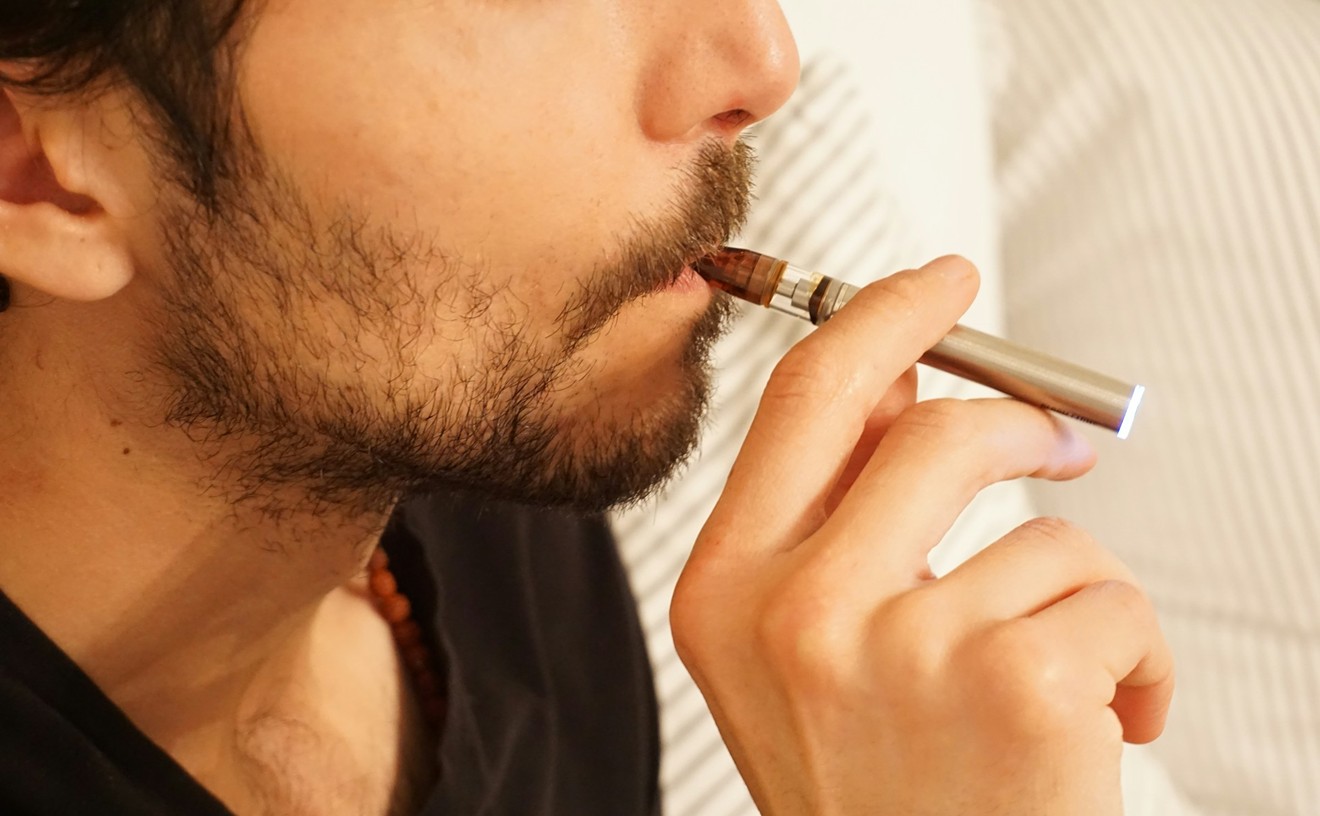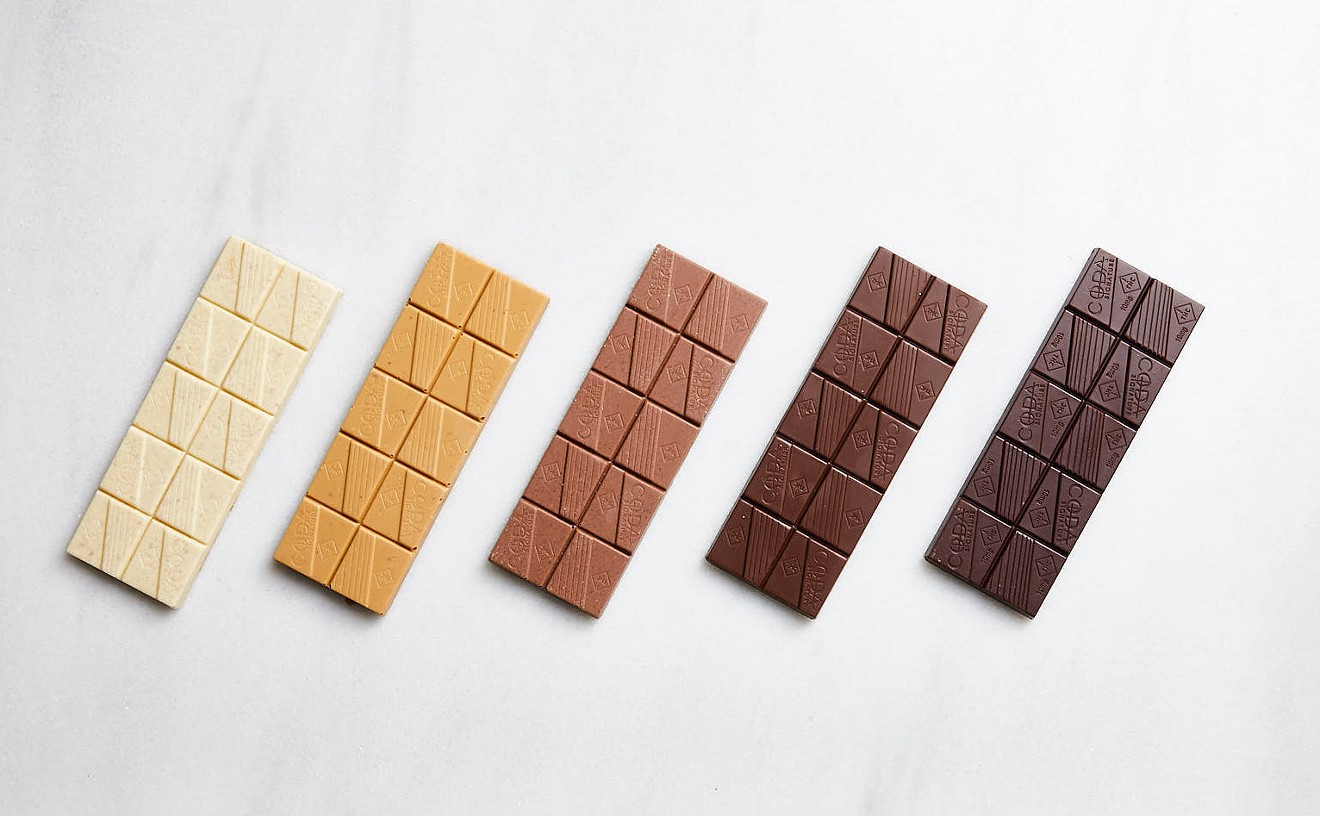It took over a week for the city to count the votes, but on November 15, Denver officials finally announced that voters had approved Initiative 300, which allows the social consumption of marijuana in the city. Three days later, however, Colorado's Liquor Enforcement Division (LED) adopted a new rule that prohibits any business with a liquor license from also applying for a social-consumption license.
On February 3, five plaintiffs — including Emmett Reistroffer and Kayvan Khalatbari — filed suit against the state over that rule.
"We believe the rule was a direct response to Initiative 300," says Reistroffer, who was the campaign manager of I-300. "It was a politically charged rule and bypassed community input."
Reistroffer argues that the Colorado Department of Revenue's LED exceeded its authority when ruling that liquor-license holders could not apply for a social-consumption permit. And Christy Chase of the Office of Legislative Legal Services agrees with him.
In a memorandum she published on January 27, Christy wrote that the LED's ruling was illegal. She recommended that "the rules of the LED concerning marijuana consumption be repealed because the division lacks statutory authority to adopt a ban on marijuana or marijuana product consumption on a liquor-licensed premises.
"We think the Department of Revenue overstepped its boundaries, bypassed the stakeholders, and made a sweeping policy change outside of their authority," she added.
Reistroffer argues that the LED's rule is counter to the intention of I-300, circumventing the will of the voters.
"The 'Just Say No' rule across the state creates more of the bathroom, back alley, in-your-car consumption," he says. "It makes it harder for Hand A, the marijuana club, to talk to Hand B, the bar across the street, because people are going back and forth to use both," Reistroffer says. "We want to allow places, specifically music and entertainment venues where we think this is needed the most, to control alcohol and marijuana under the same roof."
Reistroffer, a member of the city-appointed Social Consumption Advisory Committee, says the lawsuit is likely to affect the committee's discussions about social use. "The rule removes the vast majority of bars, restaurants and music venues from having the ability to get a 300 permit," he points out. "We think the vast majority of these businesses should at least have the conversation to consider getting a permit.
"The businesses that serve alcohol will always be the most cautious," he continues. "They're going to put the most time into figuring out a plan that works, they're going to plan an insurance policy. We already knew it would be a slow and cautious rollout, but this rule takes away the ability to have a conversation."
[
{
"name": "Air - MediumRectangle - Inline Content - Mobile Display Size",
"component": "12017618",
"insertPoint": "2",
"requiredCountToDisplay": "2"
},{
"name": "Editor Picks",
"component": "17242653",
"insertPoint": "4",
"requiredCountToDisplay": "1"
},{
"name": "Inline Links",
"component": "18838239",
"insertPoint": "8th",
"startingPoint": 8,
"requiredCountToDisplay": "7",
"maxInsertions": 25
},{
"name": "Air - MediumRectangle - Combo - Inline Content",
"component": "17261320",
"insertPoint": "8th",
"startingPoint": 8,
"requiredCountToDisplay": "7",
"maxInsertions": 25
},{
"name": "Inline Links",
"component": "18838239",
"insertPoint": "8th",
"startingPoint": 12,
"requiredCountToDisplay": "11",
"maxInsertions": 25
},{
"name": "Air - Leaderboard Tower - Combo - Inline Content",
"component": "17261321",
"insertPoint": "8th",
"startingPoint": 12,
"requiredCountToDisplay": "11",
"maxInsertions": 25
}
]












